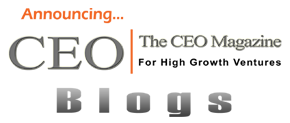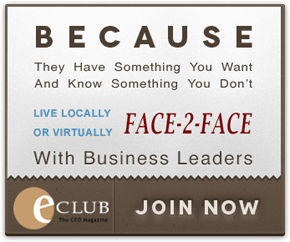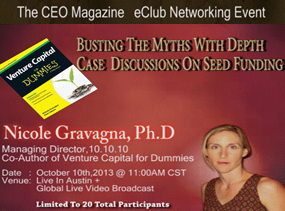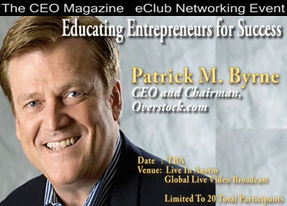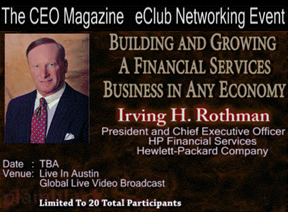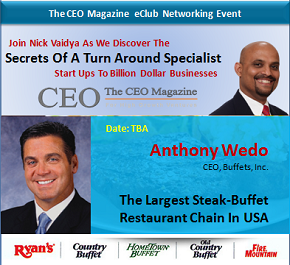You are here
- Guest Blogger |
- Leadership - Management |
- Fri, 03/13/2015 - 21:27

W. Gary Sitton, Author, Fire Up Your Startup and Keep it Up
While I was a professor of computer science, I was asked to write a basic accounting and payroll package for two not-for-profit entities on campus. It began to establish some traction in the late 70s, culminating in the creation of my company.
Bi-Tech Software, Inc. was incorporated April 3rd, 1981. In 1995, the company was acquired by SunGard Data Systems. At that time we had over 200 employees, 300 clients and $30 million per year in revenue. My wife, Judy, and I stayed on to the run the company until our retirement in 2000. Over the course of my career, I developed twenty-two business axioms which served us well as we morphed from a mom-and-pop shop in our home to a successful enterprise. These are enumerated in this article.
Axiom #1: Make more coffee when you leave less than a cup. The basic message here is try not to hire lazy or thoughtless people. Both of these characteristics are a huge negative in a company in terms of morale and dollars.
Axiom #2: The first six people you hire will set the work, social, ethical, and intellectual character of your company; be extremely careful with these hires. We were so fortunate with the first hires. I had the advantage of knowing them as students, and I could sense a strong character and work-ethic with each of them. It is interesting that in all the years I ran Bi-Tech, I only fired four people. However, many left. In order to become productive, new employees had to learn the software. In order to do this, you need help. If a new hire showed work habits or ethical or intellectual character values that did not mesh with the other employees, he or she simply would get no help and would leave, rather quickly. The record was four hours. I hired a programmer; he came to work at 8:00 a.m., left for lunch, and never returned. I called him at home and asked what was wrong. He said, “You work too hard.” Another major reason for our early success is that I wouldn’t interview you if you had less than a 3.5 GPA, and I always asked to see the transcripts. We relaxed this requirement as we grew and learned that GPA is not always an accurate predictor of quality.
Axiom #3: Understand, respect, trust, and celebrate what your employees do for you. Employees truly enjoy working where they are appreciated. Bi-Tech had the lowest employee turnover rate in our industry. In our business, we sold large systems to highly visible clients. As they got to know our employees, they wanted to hire them. In our industry, if you don’t like your job, you can go across the street and get another one.
Axiom #4: Be honest with your employees, even when it hurts. There were a few times where we had to call everyone together to tell them we were having cash-flow issues. Luckily, we got through those times. Another thing we did that helped our retention was making our books available 24/7, online, to every employee. At any time, they could look at our balance sheet and income statement, using IFAS, of course (Interactive Fund Account System – our package). Obviously, we did not give access to detailed payroll information. The one time I was not forthright with our employees was during the acquisition. I waited until the acquisition was 99 percent complete. I feared their reaction; in hindsight, I probably could have been open about it.
Axiom #5: Never borrow money. This only applied to us. My view was if we can’t make more than we spend, we shouldn’t be in business; and borrowing money burdens your company with debt. Fact is there are many very successful companies that fund their growth with debt.
Axiom #6: Don’t confuse being smart with having a knack for something. I found this to be a most interesting axiom. There are simply some people who are really good at certain things. Your job as a leader is to discover who is good at what.
Axiom #7: Encourage employees with a negative attitude to work for your competitors. Nothing is more damaging to a company than having an employee with a negative attitude. They give rise to strife, mistrust, and reduced productivity.
Axiom #8: Let employees make important decisions and mistakes (you’ve got to do both). When employees get to make critical decisions, they feel engaged and valuable. The value of engagement far outweighs the risk of mistakes; and over the years, the employees got it right about as much as I did.
Axiom #9: Hire a few people who tease and cut up (they keep things light). Your employees will spend 30-plus percent of their life at your company. Having a light atmosphere helps make them feel good about being at work. Sometimes our practical jokes got a little out of hand. When we were working out of the A-frame, we had a Springer spaniel that was nuts for a flashlight beam. Ray Kaminski (someone who clearly matched this axiom) took a tea towel and tied a flashlight to the dog’s head. We had beautiful herringbone redwood siding inside one of the rooms. The dog would see the light beam on the siding and attack. Judy came into the room and saw all the scratches; she was not amused.
Axiom #10: Listen carefully to your clients; they will tell you how to stay in business. The close trusting relationship we established with our clients was invaluable to getting feedback on how we were doing. Having our clients draw up a list of enhancements to our software kept us very competitive.
Axiom #11: Leave your office door unlocked and open. With the exception of employees who were having personal problems, my office door was never shut, never locked. I kept all my private documents, like payroll information, in a locked file cabinet in my office. I thought it was important for an employee to walk by my office and just step in to chat. The only thing that went missing from my office was a stuffed Kangaroo; it was held for ransom by an employee conforming to Axiom #9.
Axiom #12: Minimize company policy and procedures. There is no policy or procedure statement that will keep jerks from being jerks. Treat people like adults, and they will generally act like adults.
Axiom #13: Honor all contracts. This axiom is a major reason we were never involved in litigation of any form.
Axiom #14: Under commit and over deliver. Okay, this is the one with which we had the most trouble. In the early years, while striving for a contract, we sometimes relaxed this axiom. Without exception, violating this axiom brought regret.
Axiom #15: Family comes first; work comes second. This was a big part of the company character. It really started when seventeen employees were working out of the A-frame with our two kids running around. If a family had a crisis, we did everything we could to help. This philosophy was also part of SunGard. When my son died, they told me to take as much time as I needed.
Axiom #16: The best committee size is one. For some projects, such as a complete rewrite of the package, this doesn’t work. I have found great success over the years by assigning one person to a development task and then leaving him or her alone to complete it. Because one person invests his or her ego into the task, the outcome is typically better than expected. People enjoy doing important work on their own.
Axiom #17: Get paid for your work. This was pounded into me by SunGard. When we were acquired, Phil Dowd, my bosses’ boss, put a plaque on my desk that said, “Get Paid for Your Work.” Fact is, if you charge for your work, the client values it more.
Axiom #18: Take time to chat with employees. This follows the “management by walking around” theory. It works. You don’t always have to talk about work.
Axiom #19: Anyone can be replaced. Judy and I were, and the company is doing fine today, fourteen years after we retired.
Axiom #20: Don’t let attorneys tell you how to run your business. When I was with the Statewide Academic Senate, I got to meet John O’Connell. John was a Chico State engineering graduate and went on to be president of Bechtel Corporation, a huge international enterprise. While I was contemplating starting Bi-Tech, I got a chance to sit down with John and ask him some questions. One of my questions was, “What is your view of attorneys?” John said, “You can use them to keep you out of trouble or get you out of trouble; I prefer the latter.”
Axiom #21: Employee turnover is much more expensive than paying well. We paid our employees very well. That’s a very big reason they stayed with us.
Axiom #22: Never, ever, think you have figured out how to run a successful business. Being a lifelong learner helps you stay in business.
About the Author
W. Gary Sitton received his bachelor’s and master’s degrees from California State University, Chico where he now teaches. He received his Ph.D. in computer science from University of Alberta. Sitton is also a member of a number of local boards including the Gateway Science Museum.
Follow The Blog
Blog Categories
- Business Ops. (45)
- Editors (3)
- Entrepreneurship (196)
- Finance (25)
- Leadership (529)
Blog Authors
- Guest Blogger (835)
- Cynthia Kay (92)
- Linda Henman (78)
- Dianna Booher (46)
- Craig Ross (31)


